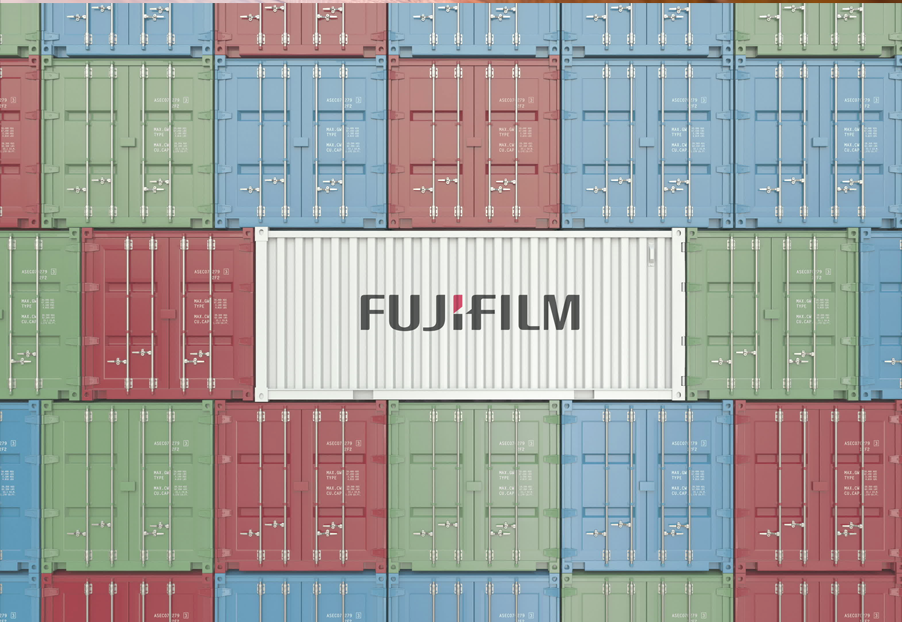People are creatures of habit. If we’ve always done things one way, the chances are we’ll continue to do it that way. But rather than waiting for something to happen before we react, the best way to deal with problems is to anticipate them and face them head-on.
Sadly, when it comes to the media, many successful people are keen to bury their head in the sand and stay as far away from it as they possibly can.
Traditionally, families are slow to adapt to changes in communications and media. The same was true twenty years ago when even major brands struggled make the digital leap. The transformation of the media over the last century has still left many in the dark.
What families can learn from Fujifilm
Let’s consider an example. In the late 1990s, two giants of photography, Kodak and Fujifilm, dominated the market. Their business models were built almost entirely on the sale of photographic film. Just before the digital transition, film made up 72% of Kodak’s and 60% of Fujifilm’s revenue.
The emergence of digital cameras posed a huge threat to both their businesses. The industry was transformed overnight, but the two companies had very different reactions to this change. While Fujifilm saw the writing on the wall, Kodak was dragged kicking and screaming into the digital age. This is not so different to what has happened to a lot of successful businesspeople and their communications today.
What can we learn from this case study? It wasn't that Kodak refused to modernise – they did, in fact, pump billions into the development of digital cameras – but, like many families, they failed to understand the new digital world they were part of.
The barriers to entry for the digital market were much lower, meaning these companies no longer shared a safe market with good profits. Kodak poured money into printing services, failed to anticipate the decline of physical media, and ultimately mismanaged their finances.
Fujifilm, unlike its main competitor, ended up on top. They saw the digital age coming a mile off and employed their experience in film chemicals to produce panels for LCD screens, industrial materials, pharmaceuticals and even cosmetics. In their last accounts they announced a record-high income of nearly $2 billion.
The advent of the Internet caused a similar seismic shift in communications. It meant that everyone could get their message out, not just the ten o’clock news or the Sunday papers – something private clients today fail to recognise.
How families need to adapt
We can draw a striking comparison to how many families and successful individuals see their reputation in the digital age. A lack of understanding can lead to disaster. Improper investment equally so. This manifests itself in the use of subpar websites for online profiles, improper use of social media or lack computer proficiency causing security risks.
Many families fail to see that communications has changed, or at the very least mismanage their strategy like Kodak did. They try to coast on by without proper planning, hoping they can fly under the radar unknown and undetected – this is absolutely not the case.
A quote that’s been attributed to different authors, from Oliver Cromwell to W.B. Yeats says, "do not wait to strike till the iron is hot; but make it hot by striking". This is exactly what Fujifilm did in the late 90s, and it’s exactly what successful people need to do with their communications strategy today.
The modern businessperson must not wait for a negative story to come out about them in the press or on social media before they think about PR. Instead, they need to think like the executives at Fujifilm and create a proactive strategy.
How families can get on the front foot
Families need to get on the front foot. This could be anything from a personal website to communicate new information about themselves online, down to a fully curated digital profile that evidences their business acumen and philanthropic work.
In the photography industry, diversification was the key to survival. The same is true in communications. It’s no longer enough to do a puff piece in the papers or an interview on TV every two years. If you want to get your message out there, you need to think about what you want to say and use every platform available to say it.
Many people are cursed with myopia. They think that because they are currently successful without a carefully executed communications plan that this will never come back to bite them. The reality couldn’t be further from the truth.
If the example of the two analogue juggernauts teaches us anything, it’s that those who see the writing on the wall and proactively deal with an issue will have a much better time dealing with it than those who are forced to play catchup or completely misjudge the situation.
Families need to think ahead and foster a positive reputation for themselves or they risk being backed up against the ropes in a media crisis without the guard that a consciously curated digital profile provides.
Aaron Hill is an Executive at Transmission Private, specialising in digital communications, digital media, and managing online profiles

